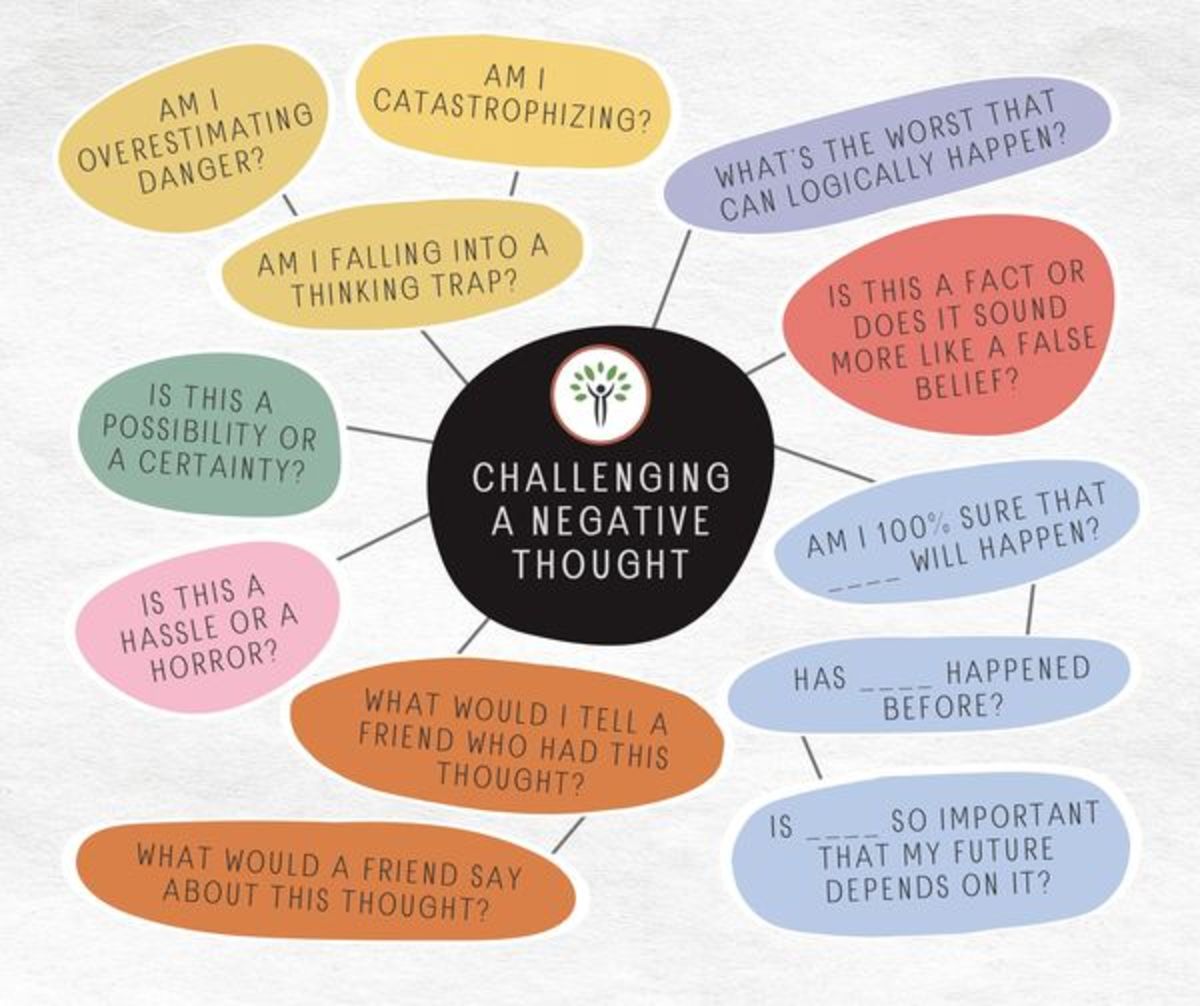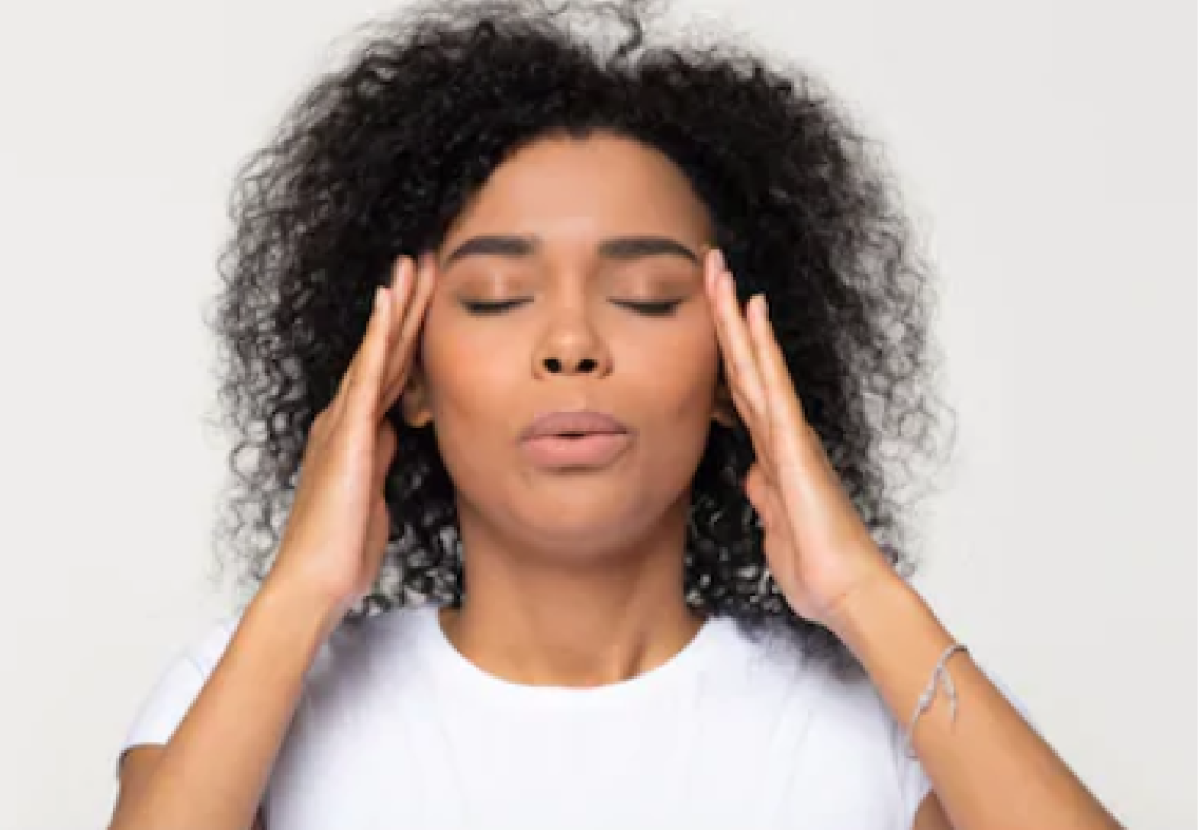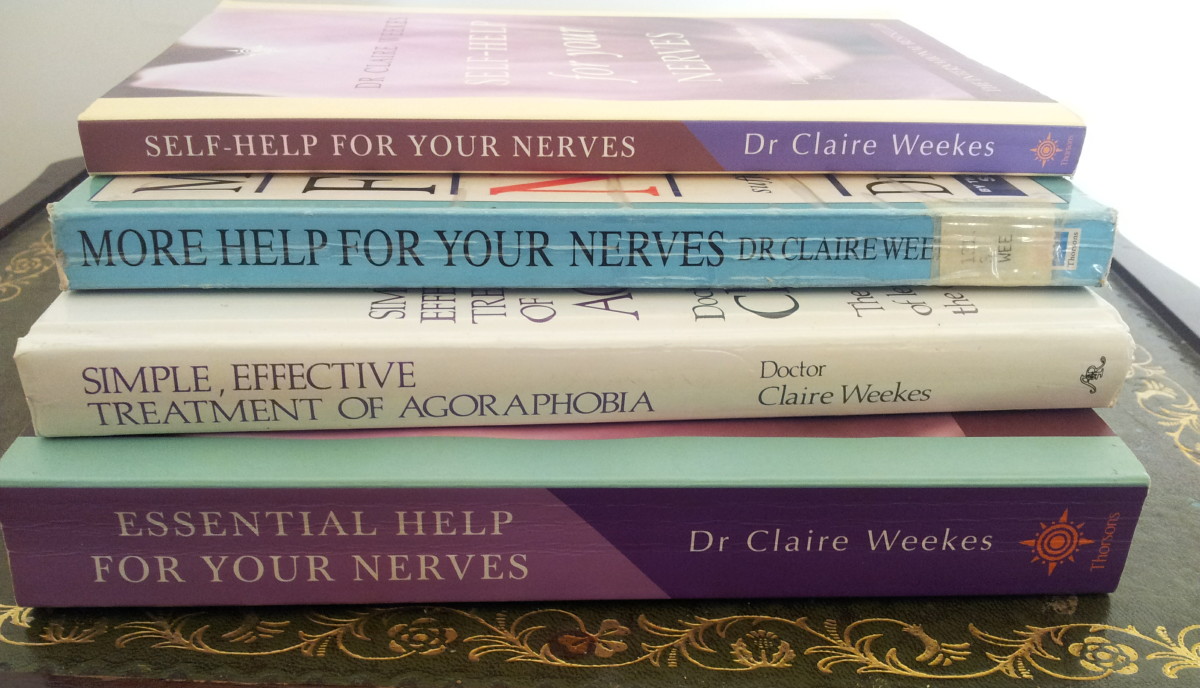9 Tips to Manage Anxiety
Get to Know Yourself

Many people try to run to distractions to avoid their negative feelings of pain, loss, hurt, frustration, and especially fear. When you have anxiety issues, you can grow to fear fear and worry themselves. So you run from them, bury them deep, and try to forget about them until the tension builds up and begins negatively impacting, not only your mental health, but your body as well.
Anxiety relief requires that you stop thinking about harmful thoughts, so you try to turn off your self-awareness mechanisms. The problem with this technique, is that when you lose your self-awareness mentally, you lose awareness of your body as well.
Having a strong "mind-body connection" is important to understanding what causes your anxiety and when. If you can establish this connection and get to know what your triggers are, you can learn to overcome them and release yourself from the grip of anxiety and its effects on your mental and physical health.
Most people have some sort of mind-body connection, but it is typically very weak in those with busy schedules and low rest time. Establishing a stronger connection isn't easy, but there are exercises you can do to help, including breathing techniques, martial arts, and yoga.
Refute Negative Thoughts

Now that you've begun to understand a little more about your triggers and the negative thoughts that send you into a panic, you can begin to tackle them head on. One of the most effective ways to battle anxiety is to refute the negative thoughts that cause it in the first place.
What is your trigger? What do you worry about?
- Money?
- Relationships?
- Health?
- Social Status?
- Work Frustrations?
- How about Loss? loss of a job...? loss of a loved one...? loss of a position of authority...?
What are the things you tell yourself about these triggers?
- My wife doesn't love me
- My boss won't ever promote me or give me the raise I need
- I probably have that cancer gene from my dad; I'm going to get cancer and die
- I'm going to lose the house; I'll never get out of debt
You can't take practical steps to solving the problems that keep you up at night, until you first realize in your mind that you CAN overcome them. Find evidence to refute the lies and the negative thoughts that you have so you can turn them into positive thoughts and motivations.
- My wife loved me enough to marry me and she's still with me; we can solve any problems that come our way if we communicate
- I'm a hard worker; if I show my boss that, he'll promote me and give me a raise
- There's just as much of a chance that I don't have the cancer gene. I'm living cancer-free right now. I'll focus on that.
- I have always been able to provide for my family. I will find a way to make more money or downsize so that we still have a roof over our heads. I have friends and family that will help me if I'm in trouble.
This positive self-talk may sound dumb, but the things you're saying are true. You always have a choice and options. You may have to work for them but you have complete control of your life. Start telling yourself that you can do the things you think you can't and that the thinks you fear might happen aren't ensured. Think logically, not emotionally, to create positive emotions.
Practice Gratitude

Nothing fights self-pity like gratitude. And self-pity can play a huge factor in anxiety. Instead of regularly worrying about things that could go wrong or are going wrong, focus on all the positive things that you have or that have happened to you.
"Counting your blessings" isn't just an old phrase people say when they don't want to hear you complain... It is actually does exercise the mental positivity and help keep your concerns and anxieties at bay. It puts things into a perspective that is more logical and realistic, so that you can approach things from a more peaceful and assured mindset.
Try writing a list of everything you are thankful for. Or even just 5 things per day. It may be difficult at first, but you will find that the more you practice, the more you will find that you actually have to be grateful for.
Share Your Thoughts and Feelings

We've already said that focusing negative things isn't good for you--but that doesn't mean you should completely ignore them. Meditating on them constantly and letting them control your every thought is bad--very very bad. But ignoring them can be worse. You have to acknowledge them and express them in order to confront them and thoroughly recognize whether your fears are realistic or not.
Talking about them with a licensed therapist can be very useful and effective, however, you can also talk about them with a close friend or family member. A few caveats to this are that you need to know you can trust that person to not share with others what you've talked about and you need to be sure that they will either just listen or listen and offer sound advice.
You want to be careful of talking about your anxieties with someone who tries to fix everything as a compulsive impulse or someone who will lead you to pursue unhealthy vices to fix your problems. You just need a friendly ear and maybe some encouragement as well.
- Talk About Your Anxiety | Jennifer Hill Counseling
Eliminating anxiety is possible without taking medications if you maintain consistency with your new behaviors. Here's 10 ways to do this
Stay Occupied

One of the worst things for anxiety is too much time to revel in it. You shouldn't ignore that your fears and anxieties exist, but wallowing in them because you have nothing else to do but create new things to worry about is incredibly destructive to an anxiety disorder.
Make sure you stay occupied. If you don't have a job, consider taking up a hobby. Something that involves mental and physical concentration is great, as it will help your mind body connection. Something creative like music or art is good for keeping a positive mental state because it stimulates the part of the brain that uses imagination. And imagination can help battle some of the hard realities of life by fortifying your mind with positive possibilities rather than negative probabilities.
Maintain a Routine

Your mental health depends very much on your physical health. If you're schedule is crazy, busy, disjointed, and irregular, it can overexert your adrenal glands, which play a huge part in regulating stress.
Try to maintain a routine of waking up and going to sleep at the same time every day. Eat meals at the same time every day, as much as possible. Get your body to a place where it is secure about the most basic aspects of the day, so that you can be ready for the other curve-balls that the day will throw at you.
Get Enough Good Sleep

Again, an overexertion of the adrenal glands plays a huge roll in anxiety. Making sure you get enough sleep each night is vital to keeping your adrenaline levels regulated. Try to wake up and go to sleep at the same time each night. Try to get at least 7-8 hours of sleep. Some people may require more, and though rarely, some may require less.
If you have trouble sleeping at night because of your anxiety, try some relaxation techniques before you go to bed. There are some yoga and tai chi exercises that will help significantly. Maybe reading a book or drinking some hot tea helps calm you down.
And you can always talk to your doctor about sleep issues to find a solution that will work best for you.
Exercise

Exercise helps to regulate your adrenaline levels and get rid of stress. It helps enhance your overall cognitive functions, allowing you to think logically rather than out of mental and emotional exhaustion.
When you exercise, your body releases endorphins, which are natural painkillers that also help to reduce stress and improve sleep patterns.
You don't even have to do anything very rigorous. For purposes of stress relief, a 10-minute walk can be just as good for you mentally as an hour-long cardio workout.
Exercise is also very helpful in establishing a stronger mind-body connection as you learn coordination, which requires the brain to signal the body's functions.
Use Relaxation Techniques

Depending on the person, music or reading or similar activities can help to relax you. Try a few to find out what works for you.
Also, meditation, prayer, yoga, or similar practices are proven to relieve stress and help relax you. Try taking a class or just finding some stretches or techniques on youtube.
There are also breathing and relaxation techniques that a therapist or counselor can teach you to help bring you back to a relaxed state when you're having a panic attack or can't clear your mind of something.








